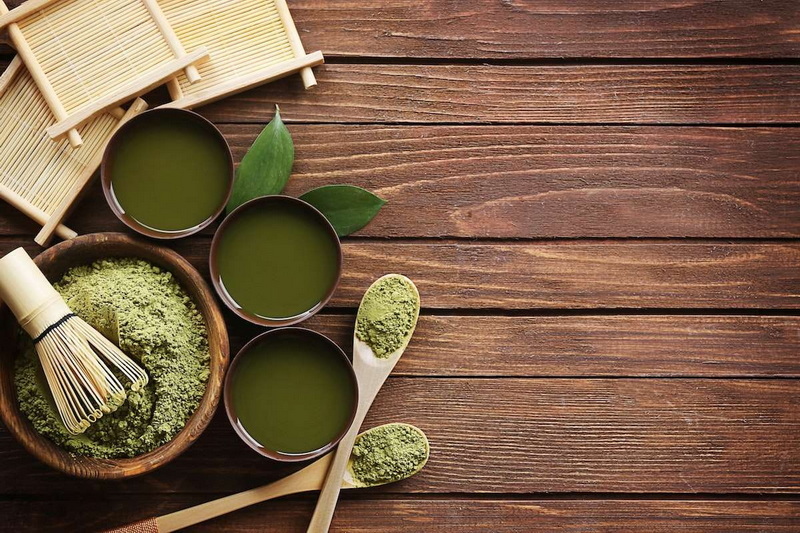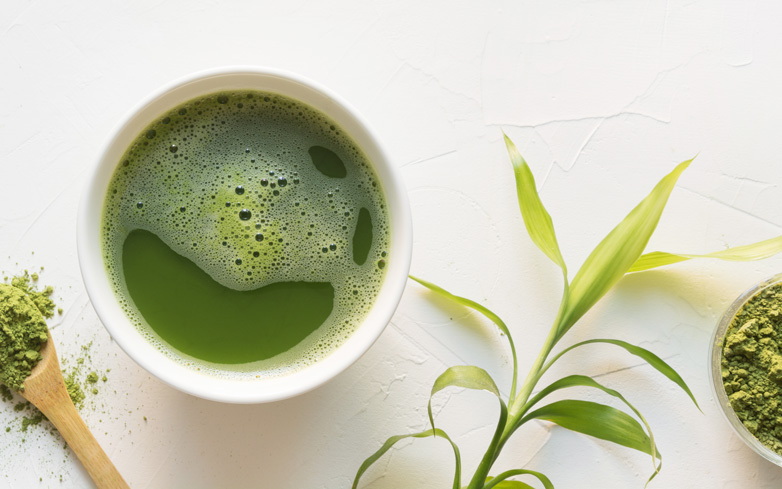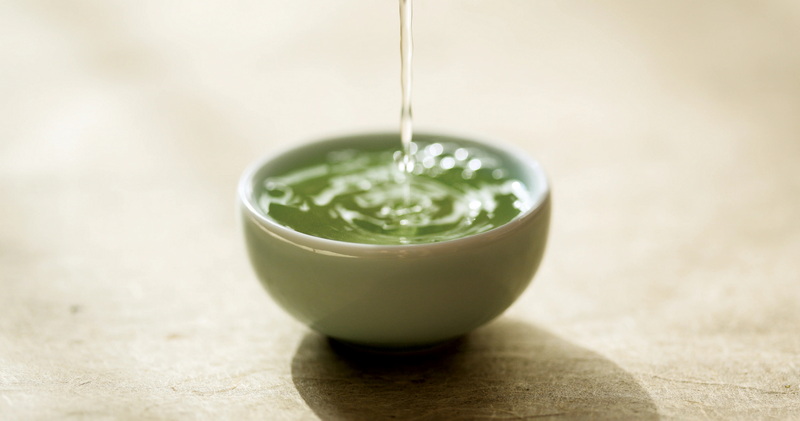Content Menu
● Understanding Green Tea Extract
● Recommended Dosage
● Health Benefits of Green Tea Extract
● How to Take Green Tea Extract
● Potential Side Effects
● Who Should Avoid Green Tea Extract?
● Conclusion
● Frequently Asked Questions
>> 1. What is the best time to take green tea extract?
>> 2. Can I take green tea extract if I am sensitive to caffeine?
>> 3. Is it safe to take green tea extract daily?
>> 4. Can I combine green tea extract with other supplements?
>> 5. What should I do if I experience side effects from green tea extract?
● Citations:
Green tea extract has gained immense popularity in recent years due to its numerous health benefits, including weight loss, improved brain function, and antioxidant properties. However, understanding the appropriate dosage is crucial for maximizing these benefits while minimizing potential side effects. This article will delve into the recommended dosages of green tea extract, its health benefits, potential side effects, and frequently asked questions.

Understanding Green Tea Extract
Green tea extract is derived from the leaves of the Camellia sinensis plant and contains concentrated amounts of bioactive compounds, primarily catechins such as epigallocatechin gallate (EGCG). These compounds are responsible for many of the health benefits associated with green tea.
Green tea is one of the most consumed beverages worldwide and has been used for centuries in traditional medicine. The extraction process concentrates the beneficial components, making it a popular choice for supplements. The extract typically comes in powder or capsule form and can vary in concentration depending on the brand and formulation.
Recommended Dosage
Determining the right dosage for green tea extract can vary based on individual health goals and specific products. Here are some general guidelines:
- General Health: For overall health benefits, a daily intake of 100 to 750 mg of standardized green tea extract is commonly recommended. This typically provides around 50-300 mg of EGCG.
- Weight Loss: Studies suggest that doses ranging from 500 mg to 1,000 mg per day can be effective for weight management. A meta-analysis found that consuming green tea supplements significantly reduced body weight and body mass index (BMI) at these dosages.
- Heart Health: For cardiovascular benefits, a daily dose of approximately 379 mg of green tea extract has been shown to improve blood pressure and cholesterol levels.
- Cognitive Function: Research indicates that a daily intake of around 336 mg of green tea catechins can enhance cognitive performance.
- Maximum Safe Dosage: While green tea extract is beneficial, excessive intake can lead to adverse effects. A safe upper limit is generally considered to be around 800 mg of EGCG per day, as higher doses have been linked to liver toxicity in some cases.
Health Benefits of Green Tea Extract
Green tea extract is rich in antioxidants and offers a variety of health benefits:
- Antioxidant Properties: The catechins in green tea extract help reduce oxidative stress by neutralizing free radicals in the body. This is crucial because oxidative stress can lead to chronic diseases such as cancer and heart disease.
- Weight Management: Green tea extract may boost metabolism and enhance fat oxidation, aiding in weight loss efforts. Studies have shown that individuals who consume green tea regularly tend to have lower body fat percentages compared to those who do not.
- Heart Health: Regular consumption can lower bad cholesterol levels (LDL) and improve overall cardiovascular health. Some studies suggest that it may also help reduce blood pressure and improve endothelial function.
- Brain Function: The antioxidants in green tea extract may protect brain cells from oxidative stress and improve cognitive function. Research has indicated that regular consumption may reduce the risk of neurodegenerative diseases like Alzheimer's and Parkinson's.
- Skin Health: Green tea extract is often used in skincare products due to its anti-inflammatory properties and ability to reduce acne. It can help soothe irritated skin and may even protect against UV damage.
- Diabetes Management: Some studies suggest that green tea extract can improve insulin sensitivity and reduce blood sugar levels, making it beneficial for individuals with type 2 diabetes.

How to Take Green Tea Extract
When incorporating green tea extract into your routine, consider the following tips:
- Choose Quality Products: Look for reputable brands that provide third-party testing results to ensure product quality and potency.
- Follow Recommended Dosages: Stick to the recommended dosages mentioned earlier to avoid potential side effects.
- Combine with a Healthy Diet: For optimal results, combine green tea extract with a balanced diet rich in fruits, vegetables, lean proteins, and whole grains.
- Stay Hydrated: Drinking plenty of water throughout the day can help mitigate any potential gastrointestinal discomfort associated with taking supplements.
Potential Side Effects
While green tea extract is generally safe for most people when taken within recommended dosages, some individuals may experience side effects:
- Gastrointestinal Issues: Common side effects include nausea, stomach upset, diarrhea, and abdominal pain. These symptoms are often more pronounced when taking high doses or on an empty stomach.
- Liver Toxicity: High doses (over 800 mg EGCG) have been associated with liver damage in rare cases. Symptoms may include yellowing of the skin or eyes (jaundice), nausea, and stomach pain. If you experience these symptoms after taking green tea extract, seek medical attention immediately.
- Caffeine Sensitivity: Green tea contains caffeine, which may lead to insomnia, anxiety, or increased heart rate in sensitive individuals. If you are sensitive to caffeine or consume other caffeinated products, consider opting for decaffeinated versions of green tea extract.
Who Should Avoid Green Tea Extract?
While many people can safely take green tea extract, certain individuals should exercise caution or avoid it altogether:
- Pregnant or Nursing Women: Due to the caffeine content and potential effects on fetal development, pregnant or nursing women should consult their healthcare provider before using green tea extract.
- Individuals with Liver Conditions: Those with pre-existing liver conditions should avoid high doses of green tea extract due to potential liver toxicity risks.
- People Taking Certain Medications: Green tea extract may interact with certain medications such as blood thinners or medications for high blood pressure. Always consult your healthcare provider if you are taking prescription medications before starting any new supplement.
Conclusion
Green tea extract can be a powerful supplement with numerous health benefits when taken correctly. The recommended dosage varies depending on individual health goals but generally falls between 100 mg to 1,000 mg per day. It is essential to consult with a healthcare provider before starting any new supplement regimen, especially if you have pre-existing health conditions or are taking medications. By understanding how much green tea extract is appropriate for your needs, you can harness its potential advantages while minimizing any risks associated with overconsumption.

Frequently Asked Questions
1. What is the best time to take green tea extract?
Taking green tea extract with meals can enhance absorption and reduce gastrointestinal discomfort.
2. Can I take green tea extract if I am sensitive to caffeine?
Yes, there are caffeine-free versions available. Always check product labels for caffeine content.
3. Is it safe to take green tea extract daily?
Yes, when taken within the recommended dosage range (100-800 mg EGCG), it is generally safe for daily use.
4. Can I combine green tea extract with other supplements?
Consult your healthcare provider before combining supplements to avoid potential interactions.
5. What should I do if I experience side effects from green tea extract?
If you experience any adverse effects such as nausea or liver symptoms, discontinue use immediately and consult a healthcare professional.
Citations:
[1] https://www.canada.ca/en/health-canada/services/food-nutrition/public-involvement-partnerships/notice-modification-list-permitted-supplemental-ingredients-permit-use-green-tea-extract-supplemental-ingredient-foods/document.html
[2] https://www.mountsinai.org/health-library/herb/green-tea
[3] https://www.alamy.com/stock-photo/green-tea-extract.html
[4] https://www.youtube.com/watch?v=fkASB21-xrQ
[5] https://www.healthline.com/nutrition/10-benefits-of-green-tea-extract
[6] https://www.webmd.com/vitamins/ai/ingredientmono-960/green-tea
[7] https://www.zhounutrition.com/blogs/the-greatness-files/green-tea-extract-q-a
[8] https://examine.com/supplements/green-tea-extract/
[9] https://health.clevelandclinic.org/green-tea-extract-a-better-way-to-boost-energy-or-not
[10] https://www.youtube.com/watch?v=A7tjlpYdUGU
[11] https://askthescientists.com/green-tea-extract/
[12] https://www.urmc.rochester.edu/encyclopedia/content?contenttypeid=19&contentid=greenteaextract
[13] https://pmc.ncbi.nlm.nih.gov/articles/PMC7009618/
[14] https://consensus.app/questions/much-green-take-daily/
[15] https://www.webmd.com/vitamins/ai/ingredientmono-960/green-tea
[16] https://www.drugs.com/npp/green-tea.html
[17] https://examine.com/supplements/green-tea-extract/
[18] https://www.healthline.com/nutrition/egcg-epigallocatechin-gallate
[19] https://pubmed.ncbi.nlm.nih.gov/29580974/
[20] https://www.peacehealth.org/medical-topics/id/hn-2102007
[21] https://www.istockphoto.com/de/bot-wall?returnUrl=%2Fde%2Fphotos%2Fgreen-tea-extract
[22] https://www.shutterstock.com/search/green-tea-treatment
[23] https://www.youtube.com/watch?v=eMuE16vLV_s
[24] https://www.vecteezy.com/free-videos/green-tea-extract
[25] https://blog.invitehealth.com/green-tea-our-most-common-questions/
[26] https://www.medicalnewstoday.com/articles/269538
[27] https://www.mountsinai.org/health-library/herb/green-tea
[28] https://www.nccih.nih.gov/health/green-tea
[29] http://www.greenskybio.com/blog5/best-answers-to-7-key-questions-about-green-tea-extract.html
[30] https://www.vumc.org/poison-control/toxicology-question-week/march-12-2021-what-are-adverse-effects-green-tea-extract






























